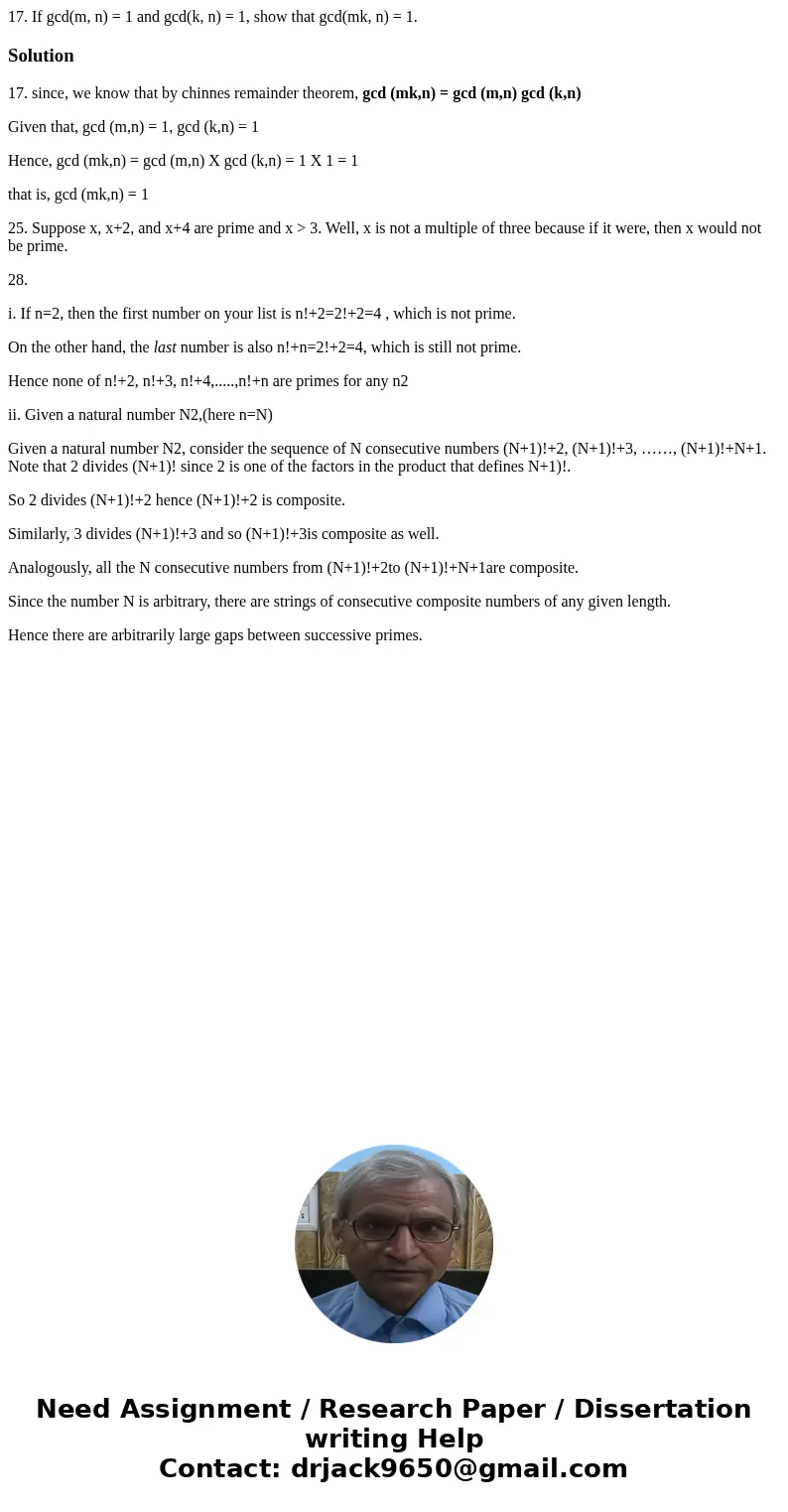17 If gcdm n 1 and gcdk n 1 show that gcdmk n 1 Solution1
Solution
17. since, we know that by chinnes remainder theorem, gcd (mk,n) = gcd (m,n) gcd (k,n)
Given that, gcd (m,n) = 1, gcd (k,n) = 1
Hence, gcd (mk,n) = gcd (m,n) X gcd (k,n) = 1 X 1 = 1
that is, gcd (mk,n) = 1
25. Suppose x, x+2, and x+4 are prime and x > 3. Well, x is not a multiple of three because if it were, then x would not be prime.
28.
i. If n=2, then the first number on your list is n!+2=2!+2=4 , which is not prime.
On the other hand, the last number is also n!+n=2!+2=4, which is still not prime.
Hence none of n!+2, n!+3, n!+4,.....,n!+n are primes for any n2
ii. Given a natural number N2,(here n=N)
Given a natural number N2, consider the sequence of N consecutive numbers (N+1)!+2, (N+1)!+3, ……, (N+1)!+N+1. Note that 2 divides (N+1)! since 2 is one of the factors in the product that defines N+1)!.
So 2 divides (N+1)!+2 hence (N+1)!+2 is composite.
Similarly, 3 divides (N+1)!+3 and so (N+1)!+3is composite as well.
Analogously, all the N consecutive numbers from (N+1)!+2to (N+1)!+N+1are composite.
Since the number N is arbitrary, there are strings of consecutive composite numbers of any given length.
Hence there are arbitrarily large gaps between successive primes.
| |

 Homework Sourse
Homework Sourse